
13 smashing reviews of classic albums
How were now-famous music albums received when they were released? Did they always elicit instant raptures, mass approval and streams of enthusiastic reviews? Here are the ironic, skeptical and downbeat reviews of 13 albums that are now regarded as rock classics.
- Cream — Wheels of Fire (1968)
- Jimi Hendrix Experience — Are You Experienced (1967)
- Creedence Clearwater Revival — Creedence Clearwater Revival (1968)
- The Mothers of Invention — Freak Out! (1966)
- MC5 — Kick Out The Jams (1969)
- Led Zeppelin — Led Zeppelin I (1969)
- Black Sabbath — Black Sabbath (1970)
- Brian Eno — Here Come the Warm Jets (1974)
- Lou Reed — Berlin (1973)
- Queen — Jazz (1978)
- AC/DC — High Voltage (1976)
- Oasis — (What's the Story) Morning Glory? (1995)
- The Beatles — Abbey Road (1969)
Music critics are human beings too. They too are influenced by emotions, moods, personal preferences and prejudices. Their only difference from ordinary listeners is that they take the courage and responsibility not to keep their opinions to themselves, but to publish them. And very often this opinion turns out to be harsh and rude — even if it is about a record which seems to us to be quite decent! The reasons for such bad behavior may be various. It happens that the critic (as well as the average listener!) is not ready for bold experiments, unexpected sound, music that does not fit into the usual framework. Or they just don't like the music or are trying to be know-it-all. Interestingly, when critiquing a particular album, some talented authors aptly point out the very features of new music, which today we consider to be innovative revelations or delightful signature "tricks". And in this case, even the most crushing review can (against the author's will!) become an implicit recognition of the talent and courage of the musicians, their determination to explore new territories.
Most of the reviews we're gonna talk about can only be read with an ironic smile. But we suggest you perceive this selection not only as an amusing anthology of critical short-sightedness, silliness and tastefulness, but first of all as a tribute to those albums that have changed the listeners' perception of how music can sound.
Cream — Wheels of Fire (1968)
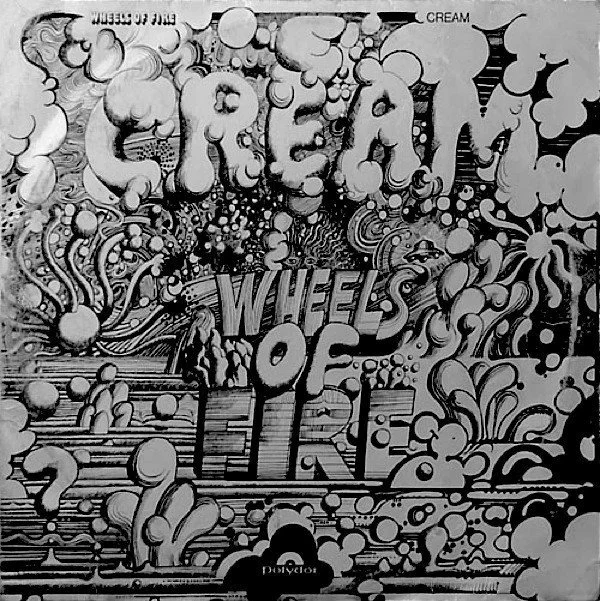 Cream — Wheels of Fire (1968)
Cream — Wheels of Fire (1968)
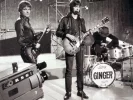 Cream's double album
Cream's double album
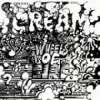 Wheels of Fire was a commercial success as soon as it was released. However, not everyone agreed that this work deserved the accolades. Rolling Stone co-founder Jann Wener began his review with the following words: "Cream is good in several moments; unfortunately, songwriting and recording is not one of them". He then attacks one of the main hits of the album, "White Room", calling it a "duplicate" of "Tales of the Brave Ulysses" from the previous record; declares that "Passing in Time" reeks of "petrified" boredom; in reviewing "Born Under a Bad Sign", writes that Jack Bruce's voice is not good enough for blues, his husky breathing is simply wrong, and Ginger Baker should know that tapping on a bell and a wooden plank doesn't make the song more funky.
Wheels of Fire was a commercial success as soon as it was released. However, not everyone agreed that this work deserved the accolades. Rolling Stone co-founder Jann Wener began his review with the following words: "Cream is good in several moments; unfortunately, songwriting and recording is not one of them". He then attacks one of the main hits of the album, "White Room", calling it a "duplicate" of "Tales of the Brave Ulysses" from the previous record; declares that "Passing in Time" reeks of "petrified" boredom; in reviewing "Born Under a Bad Sign", writes that Jack Bruce's voice is not good enough for blues, his husky breathing is simply wrong, and Ginger Baker should know that tapping on a bell and a wooden plank doesn't make the song more funky.
On the other hand, the "live" part of the album gets more praise, the journalist recognizes the Cream members as great performers and showmen. But the studio material received a lot of criticism. With time, however, the position of the magazine changed. "Wheels of Fire" became to be considered as the brightest example of the creative heritage of the legendary trio.
Jimi Hendrix Experience — Are You Experienced (1967)
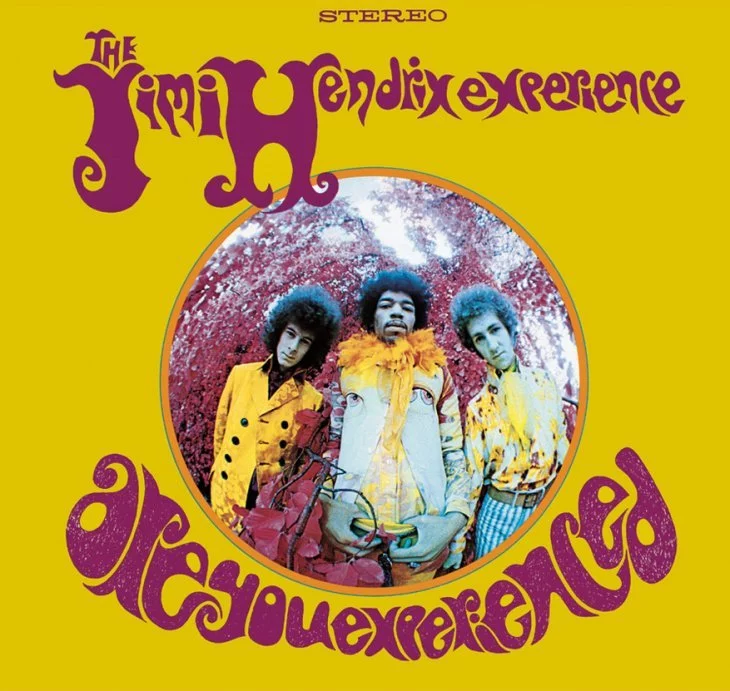 Jimi Hendrix Experience — Are You Experienced (1967)
Jimi Hendrix Experience — Are You Experienced (1967) It would be a cliché to say that the first recordings and performances of the Jimi Hendrix Trio had a bombshell effect on many of his contemporaries. On many, but not all. In a review published in the very first issue of Rolling Stone magazine, 20-year critic John Landau treated Jimi's historic first album with considerable condescension. Acknowledging Jimi's talents as a guitarist and arranger, Landau laments that Hendrix cannot be called "either a great songwriter or an outstanding singer". "Despite Jimi's musical brilliance and the band's impeccably precise performance, the low level of the songs and the lack of content spoil the impression," the critic laments. As an example, he cites the song "Manic Depression". As a result, "Are You Experienced" gets a disappointing diagnosis: "In Jimi's case, the sum total is pure violence. First of all, this record is inexorably violent, and, in terms of lyrics, lacks taste in its cruelty."
Apparently, Landau answered the question in the album's title in the negative, so he soon switched to much less "violent" soul music. However, that did not prevent him from seeing "the future of rock and roll" in the not very famous Bruce Springsteen. Now John Landau chairs the nominating committee for the Rock and Roll Hall of Fame. And that's what's really "cruel"!
Creedence Clearwater Revival — Creedence Clearwater Revival (1968)
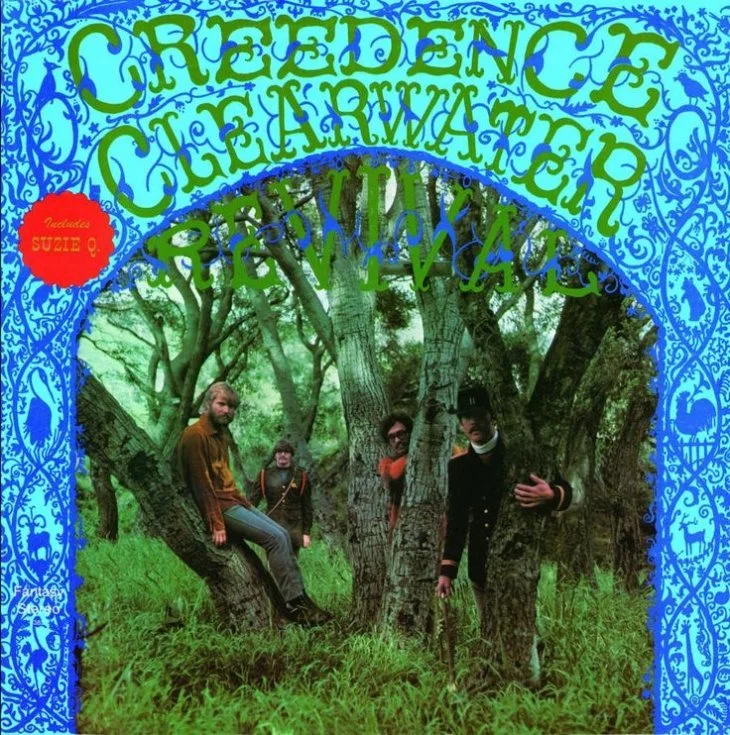 Creedence Clearwater Revival — Creedence Clearwater Revival (1968)
Creedence Clearwater Revival — Creedence Clearwater Revival (1968) Barry Gifford's review of
 CCR's debut full-length cannot be called unequivocally negative or short-sighted either. On the contrary, he pays tribute to
CCR's debut full-length cannot be called unequivocally negative or short-sighted either. On the contrary, he pays tribute to
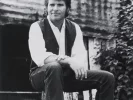 John Fogerty, albeit very modestly ("he is an above-average singer and an interesting guitarist"). However, all his efforts, in the author's opinion, are in vain because of the mediocrity and invention of the rest of the band. "The drummer is monotonous, the bass lines repeat one another, and the rhythm guitar is barely audible." Overall, the album is "unimaginably poorly produced and a waste of John Fogerty's talents." To reinforce his position, Gifford quotes San Francisco jazzman Paul de Barros, who once said that "he'd rather listen to a senile cough than a Creedence rhythm section."
John Fogerty, albeit very modestly ("he is an above-average singer and an interesting guitarist"). However, all his efforts, in the author's opinion, are in vain because of the mediocrity and invention of the rest of the band. "The drummer is monotonous, the bass lines repeat one another, and the rhythm guitar is barely audible." Overall, the album is "unimaginably poorly produced and a waste of John Fogerty's talents." To reinforce his position, Gifford quotes San Francisco jazzman Paul de Barros, who once said that "he'd rather listen to a senile cough than a Creedence rhythm section."
Barry concludes his note by saying that he thinks the band sounds much better live than on the album. John Fogerty is a real lively guy, but are his colleagues worthy of the leader's efforts?
It will soon be half a century since the first Creedence recordings, the culmination of their career, and the breakup of the ensemble. Perhaps Barry was overly critical of their debut album, because even compared to the later masterpieces of the band, it does not look like a bad work at all. But it is impossible not to admit that his point of view about the lack of talent of John Fogerty's bandmates is quite popular among the fans nowadays, especially after all the arguments and remarks of the former friends. However, all the claims to Stu Cook, Doug Clifford and Tom Fogerty did not prevent Creedence from becoming one of the greatest and most beloved rock bands in history.
The Mothers of Invention — Freak Out! (1966)
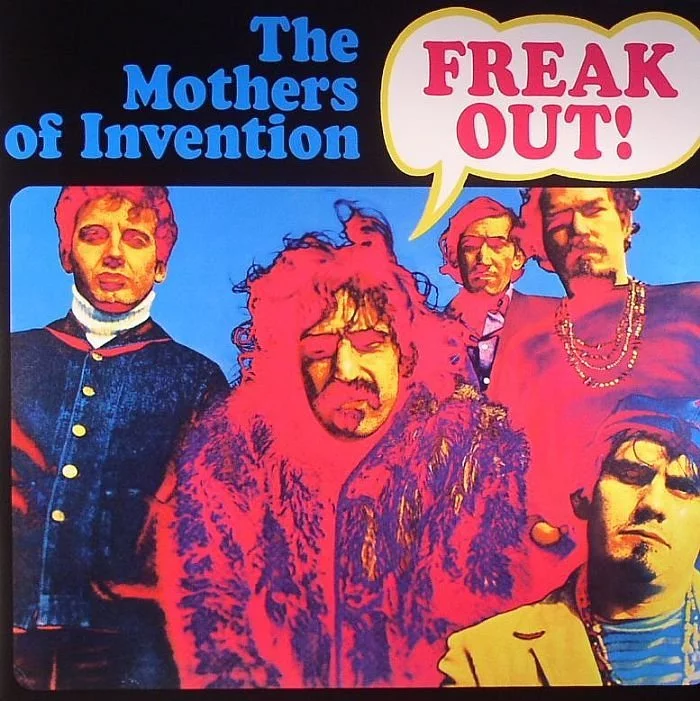 The Mothers of Invention — Freak Out! (1966)
The Mothers of Invention — Freak Out! (1966) The experimental debut opus by
 Frank Zappa and his band was one of the first double and conceptual albums in rock music. It is quite natural that not everyone was able to digest and comprehend its revolutionary charge at once. In particular, Pete Johnson of the Los Angeles Times was very unhappy with what he heard.
Frank Zappa and his band was one of the first double and conceptual albums in rock music. It is quite natural that not everyone was able to digest and comprehend its revolutionary charge at once. In particular, Pete Johnson of the Los Angeles Times was very unhappy with what he heard.
The Mothers of Invention, according to the journalist, is a "talented but perverted quintet" that was not satisfied with only two sides of the "musical gibberish", employing twice as many to demonstrate their "art". It all sells for the price of one record, in order to attract a teenage audience. ""Freak Out!" may be the best incentive for aspirin production since the income tax," and in fact, "if anyone bought this album, they could probably tell me what's going on in hell."
Johnson thought the album had some satirical charge, but, alas, musicians are often carried away into abstract excesses that dull their songs to the point of utter nonsense.
In the end, Johnson writes that there are some numbers on "Freak Out!" that sound like half-serious rock and roll (like "I Ain't Got No Heart" and "How Could I Be Such A Fool?"), but most of the material is downright heavy on the eardrums and patience of the listener.
Pete Johnson couldn't love The Mothers of Invention's first album. But that hasn't stopped Freak Out! from inspiring more and more artists for more than half a century.
MC5 — Kick Out The Jams (1969)
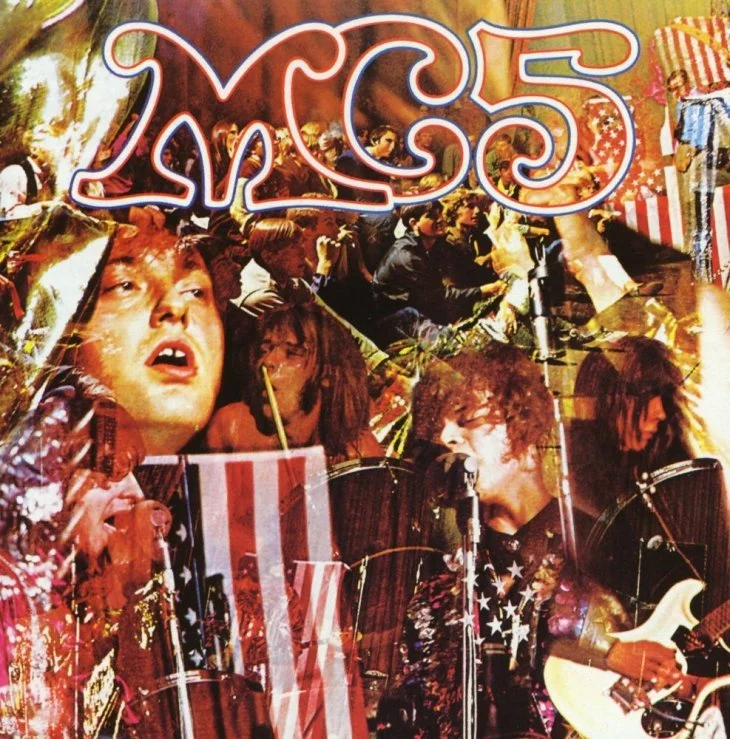 MC5 — Kick Out The Jams (1969)
MC5 — Kick Out The Jams (1969) It cannot be said that the first album by Detroit anarchists MC5 was a resounding success immediately after its release. On the contrary, the most powerful stage presentation, the originality of the musical synthesis of garage rock with elements of free jazz, as well as the band's important contribution to the formation of punk rock were recognized by critics and listeners much later.
The fact that the most famous scathing review of the album was written by Lester Bangs who went down in history as one of the most important and significant apologists of punk rock — and any weird and loud music in general — shows how harsh and unfamiliar the music of MC5 seemed at that time. Calling the album "ridiculous, presumptuous and pretentious," the would-be fan of The Stooges and The Clash notes that "most of the album's songs are barely distinguishable from one another in their primitive two-chord structures. All this, however, was enough to get this review, which was sent to the Rolling Stone editorial board by an unknown 20-year-old music lover, printed in the magazine. Thus began the career of one of the most influential music critics in history. Ordinary listeners are allowed to change their opinions. Music critics, on the other hand, are left to look back with sorrow at their creations, forever imprinted in the annals of history.
Led Zeppelin — Led Zeppelin I (1969)
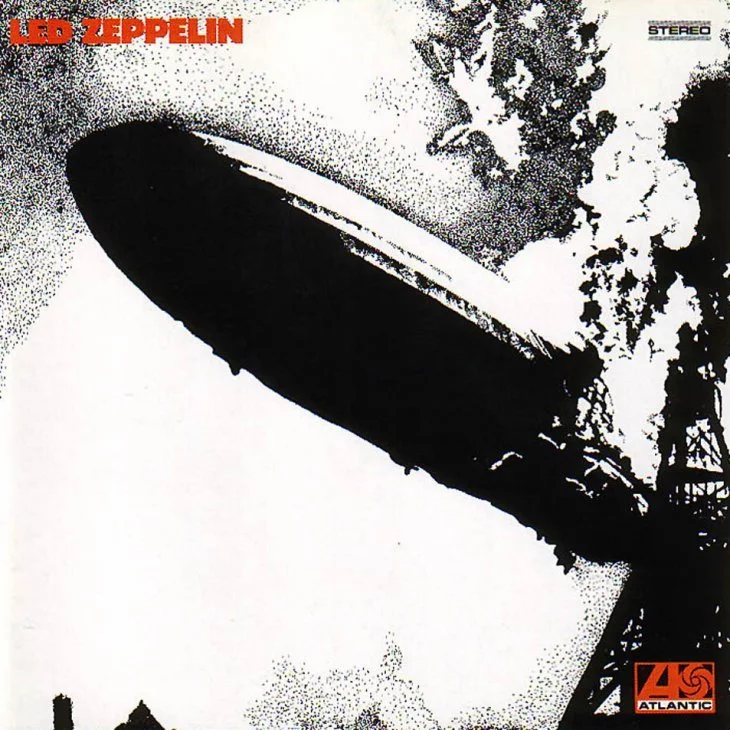 Led Zeppelin — Led Zeppelin I (1969)
Led Zeppelin — Led Zeppelin I (1969) John Mendelson, in his review of
 Led Zeppelin's debut LP in Rolling Stone magazine, declared the band itself a twin of The Jeff Beck Group, and the album to contain the same flaws as said ensemble's Truth (mostly limited and narcissistic).
Led Zeppelin's debut LP in Rolling Stone magazine, declared the band itself a twin of The Jeff Beck Group, and the album to contain the same flaws as said ensemble's Truth (mostly limited and narcissistic).
The reviewer goes on to call Jimmy Page of modest talents a producer and a writer of weak, unimaginative songs, from which Led Zeppelin's debut record suffers. Robert Plant, on the other hand, according to John, can theoretically be as graceful as Rod Stewart, but nowhere does he prove to be as thrilling, especially when sung in a high register.
The bottom line, writes Mendelson, is that Led Zeppelin are wasting their talents on unworthy material. If they want to fill the void left by the Cream breakup with their music, they should find a proper producer and somehow find worthwhile ideas.
Jimmy Page, after this kind of feedback, became very cold to talk to the press. And Mendelssohn wrote a sarcastic note on the band's second album.
Black Sabbath — Black Sabbath (1970)
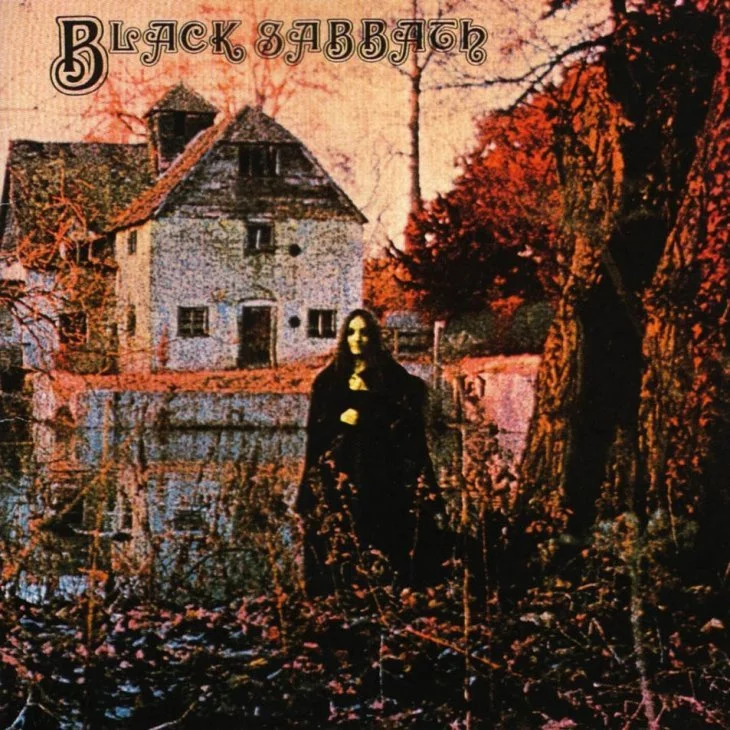 Black Sabbath — Black Sabbath (1970)
Black Sabbath — Black Sabbath (1970) The first, untitled album by the band
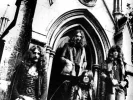 Black Sabbath is now considered a milestone in the history of heavy music; the record that gave rise to the aesthetics and sound from which entire genres of modern metal have subsequently grown. It seems obvious now, but Black Sabbath sounded very different from the '70s. In his review for The Village Voice, the sarcastic misanthropist Robert Christgau trashed the record: "The worst example of counterculture on a plastic plate — delirious necromancy, slowed-down drug reactions, long solos, literally everything."
Black Sabbath is now considered a milestone in the history of heavy music; the record that gave rise to the aesthetics and sound from which entire genres of modern metal have subsequently grown. It seems obvious now, but Black Sabbath sounded very different from the '70s. In his review for The Village Voice, the sarcastic misanthropist Robert Christgau trashed the record: "The worst example of counterculture on a plastic plate — delirious necromancy, slowed-down drug reactions, long solos, literally everything."
Lester Bangs, already mentioned in this piece, did not come to like the record either. The main idea of his review was a popular statement that the success of Cream caused a wave of mediocre copycat bands, one of which, according to Bangs, is Black Sabbath, which is described in his review as "unskilled workers". In describing the album's music, Bangs demonstrated his uncommon literary talent: "The vocals are rare, most of the album filled with slow weaving bass lines over which the lead guitar squeezes wooden claptrap from the most weary days of the master when he was in Cream." "Like Cream — only worse," one of the fathers of modern rock criticism concludes his review.
Brian Eno — Here Come the Warm Jets (1974)
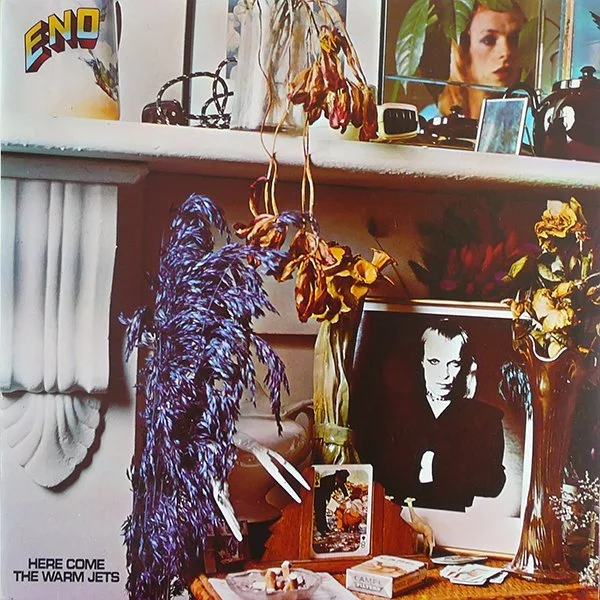 Brian Eno — Here Come the Warm Jets (1974)
Brian Eno — Here Come the Warm Jets (1974) Brian Eno's debut solo album, released the year after he left Roxy Music, drew approving reactions from such picky journalists as the aforementioned Robert Christgau and Lester Bangs. Gordon Fletcher of Rolling Stone, for example, was critical of the musician's work.
First, he noted the tendency of that era to introduce various strangeness into pop music and its sound (as Elton John or the former Eno band did, for example). Brian tries to do the same, but the "weirdness" of his songs seems more silly than puzzling. "Lacking any noteworthy performing prowess, he claims to use other musicians' parts, though the end result of his labors can be called indistinguishable" (Gordon was clearly not prepared for the arrival of a genre such as ambient, of which Eno is one of the "fathers").
"His record is annoying," Fletcher continues, "because it doesn't do anything. The songs aren't strong enough, either individually or together, and don't deserve more than a listen." Robert Fripp's guitar parts on "Baby's on Fire" are, in his opinion, one of the album's few bright spots. Gordon closed by listing the obvious influences and citations on the album, and by wishing that "the next time Eno does a record, he'll structure his work instead of rearranging the first ten things that came into his head.
In retrospect, though, that opinion seems like a curiosity. "Here Come the Warm Jets" is seen as a foreshadowing of punk rock (and even post-punk) as well as David Bowie's Berlin Trilogy. The album was included in the lists of the best creations of all time by Rolling Stone, New Musical Express, Pitchfork and others. It also appeared in the famous book "1001 Albums You Must Hear Before You Die".
Lou Reed — Berlin (1973)
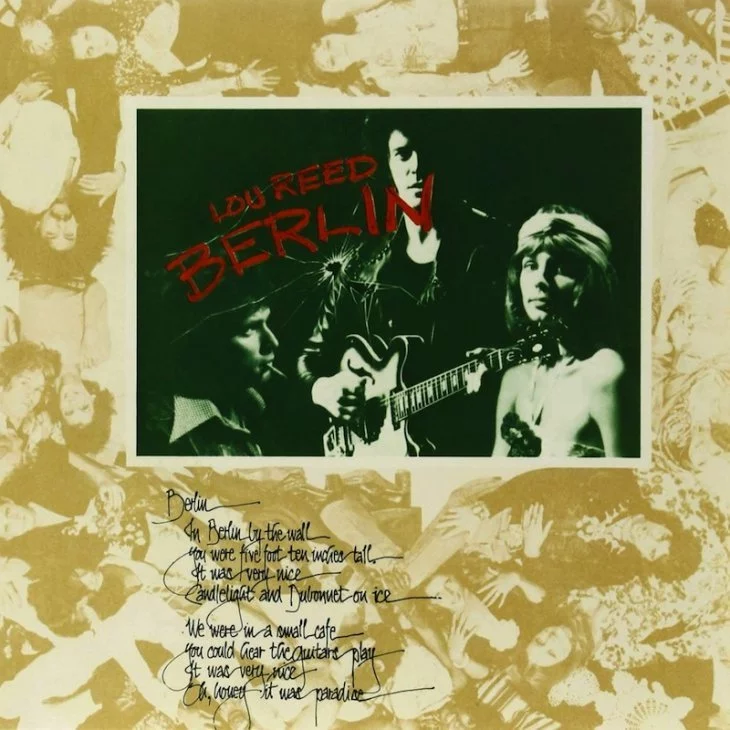 Lou Reed — Berlin (1973)
Lou Reed — Berlin (1973) After the very successful "Transformer" album, not all the listeners and critics were ready to accept the conceptual and gloomy "Berlin", which is not really surprising. If we had to make a rating of the most depressing records of rock music, this work of Lou Irda would be a contender to be in the top three.
The review by an enraged Steven Davis in "Rolling Stone" consisted of one paragraph, so it's not a sin to quote it in full.
"Berlin" by Lou Reed is a disaster, pushing the listener into a distorted and degenerate half-light of paranoia, schizophrenia, degradation, pill-popping violence, and suicide. There are certain records that are so clearly offensive that they evoke a desire to physically retaliate against the artists who created them. Reed's only excuse for that kind of work (which he didn't so much perform as speak or shout over Bob Ezrin's languid production) will be only that it was the last shot in his once promising career. Goodbye, Lou.
History has shown that the shot turned out to be far from his last (not even "Metal Machine Music" became one). Moreover, 30 years later, the same magazine included "Berlin" in its list of the 500 best albums of all time. Lou himself released a live album and film Berlin: Live at St. Ann's Warehouse in 2008, based on a performance of material from his legendary work.
Queen — Jazz (1978)
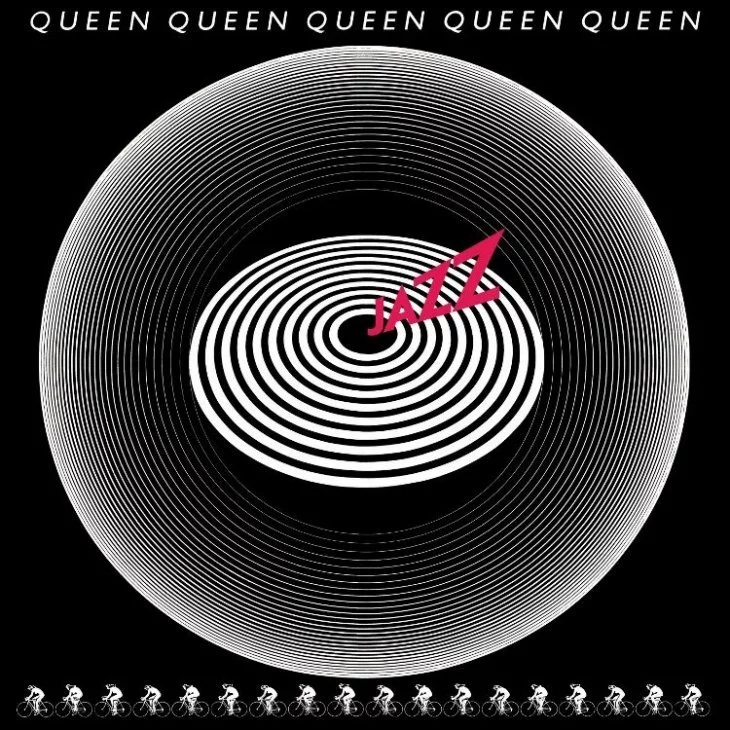 Queen — Jazz (1978)
Queen — Jazz (1978) Rolling Stone journalist Dave Marsh, known for his grumpiness, treated
 Queen in general and Freddie Mercury in particular without any piety. When "Jazz", a controversial and scandalous album, was released, Dave got an opportunity to mock the review and did not miss his chance.
Queen in general and Freddie Mercury in particular without any piety. When "Jazz", a controversial and scandalous album, was released, Dave got an opportunity to mock the review and did not miss his chance.
The reviewer stated his position harshly and from the very first words. "There's no jazz on the new Queen album, in case fans of either were concerned about insulting the sacred. Queen's musicians lack the imagination to play jazz — and rock 'n' roll, for that matter, either. "Jazz" is more of the goofy stylization that is prevalent in all the work of this British supergroup.
We learn further that "the one thing Queen does best is express disrespect." "Mustapha" is, in the author's opinion, a pathetic parody of Middle Eastern culture; "Fat Bottomed Girls" is about treating women not even as sexual objects, but simply as objects; finally, in" Let Me Entertain You" Mercury banalizes his own shamelessness. And in the last paragraph, Marsh calls Queen (also referring to We Will Rock You) "the first truly fascist rock band.
"Jazz" is a controversial album. But such criticism is not quite fair. In terms of energy and concentration of hits it's one of the best works in Queen's career.
AC/DC — High Voltage (1976)
 AC/DC — High Voltage (1976)
AC/DC — High Voltage (1976) In the mid-1970s, when the Australians
 AC/DC were breaking onto the international scene, it was hard for some critics to imagine that this band (whose guitarist dresses like a schoolboy) would become one of the major hard rock bands, that it would still draw huge arenas 40 years later, despite its age and the loss of several key members. Barry Altman of "Rolling Stone" was not impressed and was skeptical about the band and the album "High Voltage". The review was relatively short. Barry assured the hard rock fans that they can take comfort in the fact that with the release of the reviewed record the genre has reached its historical minimum, and it can only get better from here.
AC/DC were breaking onto the international scene, it was hard for some critics to imagine that this band (whose guitarist dresses like a schoolboy) would become one of the major hard rock bands, that it would still draw huge arenas 40 years later, despite its age and the loss of several key members. Barry Altman of "Rolling Stone" was not impressed and was skeptical about the band and the album "High Voltage". The review was relatively short. Barry assured the hard rock fans that they can take comfort in the fact that with the release of the reviewed record the genre has reached its historical minimum, and it can only get better from here.
AC/DC themselves, Altman thinks, have absolutely nothing to say musically, with two guitars, bass and drums - all in goose-step tempo - stomping around in meaningless "three-chord" formations. The lyrics are not far off either, the musicians' universe begins and ends with the words "I", "Me" and "Mine", and Bon Scott presents it all with irritating aggressiveness.
The fate of the band is known to all.
Oasis — (What's the Story) Morning Glory? (1995)
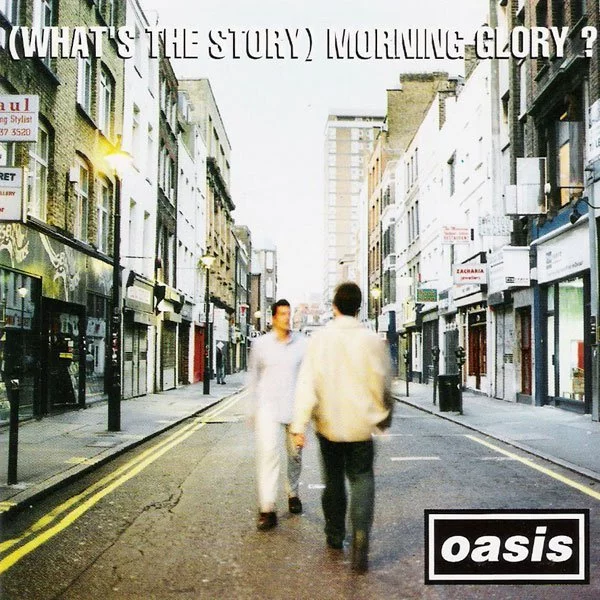 Oasis — (Whats the Story) Morning Glory? (1995)
Oasis — (Whats the Story) Morning Glory? (1995) Melody Maker weekly in the mid-1990s was known for its original stance on the then mainstream music - the Brit-pop movement. To put it simply, its journalists fired a lot of critical arrows at the representatives of this movement (even the main stars).
The review by David Stubbs on the second CD of the famous Oasis that has already become legendary can serve as a vivid example. The band is blamed for blatant retrograde orientation to the 1960s and
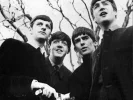 The Beatles, but Stubbs was convinced that there is no problem here. The Beatles' work is not "1960s," it's timeless, and Oasis' shortcoming is rather that they don't address it often enough. "(What's the Story) Morning Glory?", despite glimpses of grandeur, turns out to be mostly forced and lazy, and the band is, in that respect, pretty limited.
The Beatles, but Stubbs was convinced that there is no problem here. The Beatles' work is not "1960s," it's timeless, and Oasis' shortcoming is rather that they don't address it often enough. "(What's the Story) Morning Glory?", despite glimpses of grandeur, turns out to be mostly forced and lazy, and the band is, in that respect, pretty limited.
Then David goes through the songs, finding some sort of complaint with almost every one. For example, "Roll with It" is musically good, but the lyrics like "You wanna be who you be if you're coming with me" gives away Noel Gallagher's not very broad flight of fancy. On "Wonderwall," Liam's monotonous vocals are already the main problem. "Don't Look Back in Anger" is also disappointing. In the end, almost all the tracks are in trouble, except, perhaps, only "Some Might Say", which the author considers the best of the record. Even "Champagne Supernova," probably intended as "A Day in the Life" by Oasis, sounds hollow, as Liam and Noel are once again off the mark.
There are highlights on the album, but they are separated in time by a quarter of an hour. "Oasis sound exhausted," Stubbs concluded his review of the disc, now considered a major achievement of the Brit-pop era.
The Beatles — Abbey Road (1969)
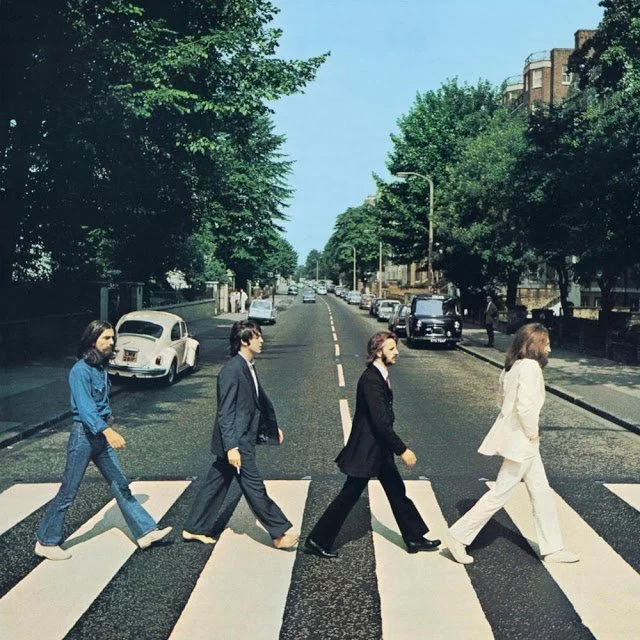 The Beatles — Abbey Road (1969)
The Beatles — Abbey Road (1969) Sometimes in reviews it's not only young or beginning bands and their debuts that get a good beating, but also the established masters. The case of "Abbey Road" by The Beatles is quite illustrative in this respect.
Here's a negative review from Nick Cohn of The New York Times (he wasn't the only one, by the way) and his main thoughts.
"There was a time when The Beatles' lyrics were one of their chief virtues.
 Abbey Road was only a hobbler in that respect"; "Abbey Road's" lyrics are lifeless, pompous, and false"; "This album is an absolute disaster"; "On 'Oh! Darling' Lennon rambles on in an orgy of screaming, swallowing and vomiting randomly scattered throughout the song" (even though it was McCartney who sang on this track).
Abbey Road was only a hobbler in that respect"; "Abbey Road's" lyrics are lifeless, pompous, and false"; "This album is an absolute disaster"; "On 'Oh! Darling' Lennon rambles on in an orgy of screaming, swallowing and vomiting randomly scattered throughout the song" (even though it was McCartney who sang on this track).
Without losing his critical rage, Cohn calls the tracks by Harrison "the epitome of mediocrity" (we are talking about "Something" and "Here Comes the Sun", by the way). And Lennon, according to the author, is sinking to new depths, and his new creations are losing not only to the works of the early The Beatles, but now to other artists as well.
And the conclusion of the whole note is: "As it stands now, it doesn't shake the imagination. Nevertheless, it has an enjoyable 15 minutes on it, which is a lot by rock standards."
Again, there were more negative reviews. In the late 1960s, taking a jab at The Beatles became almost fashionable. But over the years "Abbey Road" took its place in the honorable row of the Beatles' greatest works on a par with "Sgt. Pepper" and "Revolver".
 FM
FM
Comments